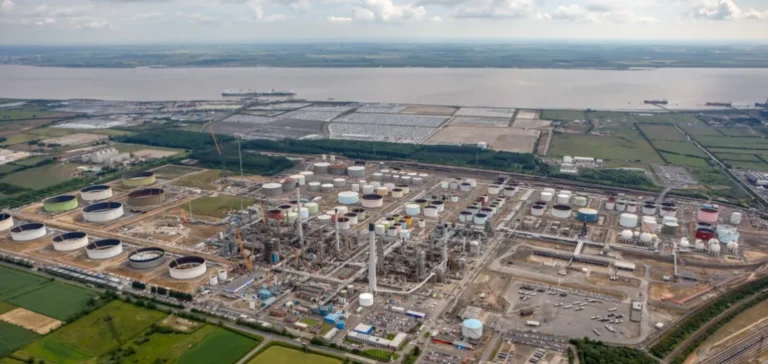The British Lindsey refinery, currently undergoing insolvency proceedings, has only 1.8 million barrels of crude oil in storage, an amount sufficient to sustain its operations for roughly three weeks. This alarming assessment comes from a recent analysis by the energy consultancy Wood Mackenzie. Due to current economic pressures, operations at the facility are already impacted by reduced crude oil processing, directly resulting from the recent shutdown of its Fluid Catalytic Cracker (FCC) unit. According to Emma Howsham, a senior analyst at Wood Mackenzie, the refinery is currently running in a less profitable mode known as hydroskimming, significantly limiting its short-term profitability.
A direct impact linked to the FCC unit shutdown
The FCC unit, responsible for converting heavy crude oil into lighter petroleum products like gasoline, is the operational and economic heart of the Lindsey refinery. Its recent shutdown forced the facility into an alternative, less efficient processing mode. The so-called hydroskimming configuration involves basic crude processing without achieving the high profit margins typically generated by refined gasoline production. Consequently, Wood Mackenzie notes that the refinery has already significantly reduced its processing volumes, worsening an already precarious financial situation. The exact timeline for restarting the FCC unit remains uncertain, and if it does not resume operations soon, a complete shutdown of the refinery could occur within days.
An additional threat to the UK market
The potential shutdown of the Lindsey refinery represents a major issue for the UK energy market, already facing significant pressure due to geopolitical instability and crude supply constraints. Lindsey, one of the country’s main refineries, directly supplies the British domestic market with fuels such as gasoline and diesel. A prolonged or permanent halt in operations could significantly disrupt the supply chain and exacerbate existing tensions in the fuel market. Economic stakeholders and British authorities are closely monitoring the situation, concerned about immediate economic impacts and potential logistical disruptions nationwide.
The coming days are critical
Given this worrying scenario, the coming days will be critical for the future of the Lindsey refinery. Prompt resumption of operations at the FCC unit is now imperative to prevent further escalation of the local and national economic crisis tied to this strategic facility. The entire UK petroleum sector is closely awaiting upcoming announcements, aware that developments in this situation could have lasting consequences. Within this context, Wood Mackenzie’s report serves as a serious warning, emphasizing the need for swift and coordinated action by the relevant economic players.






















